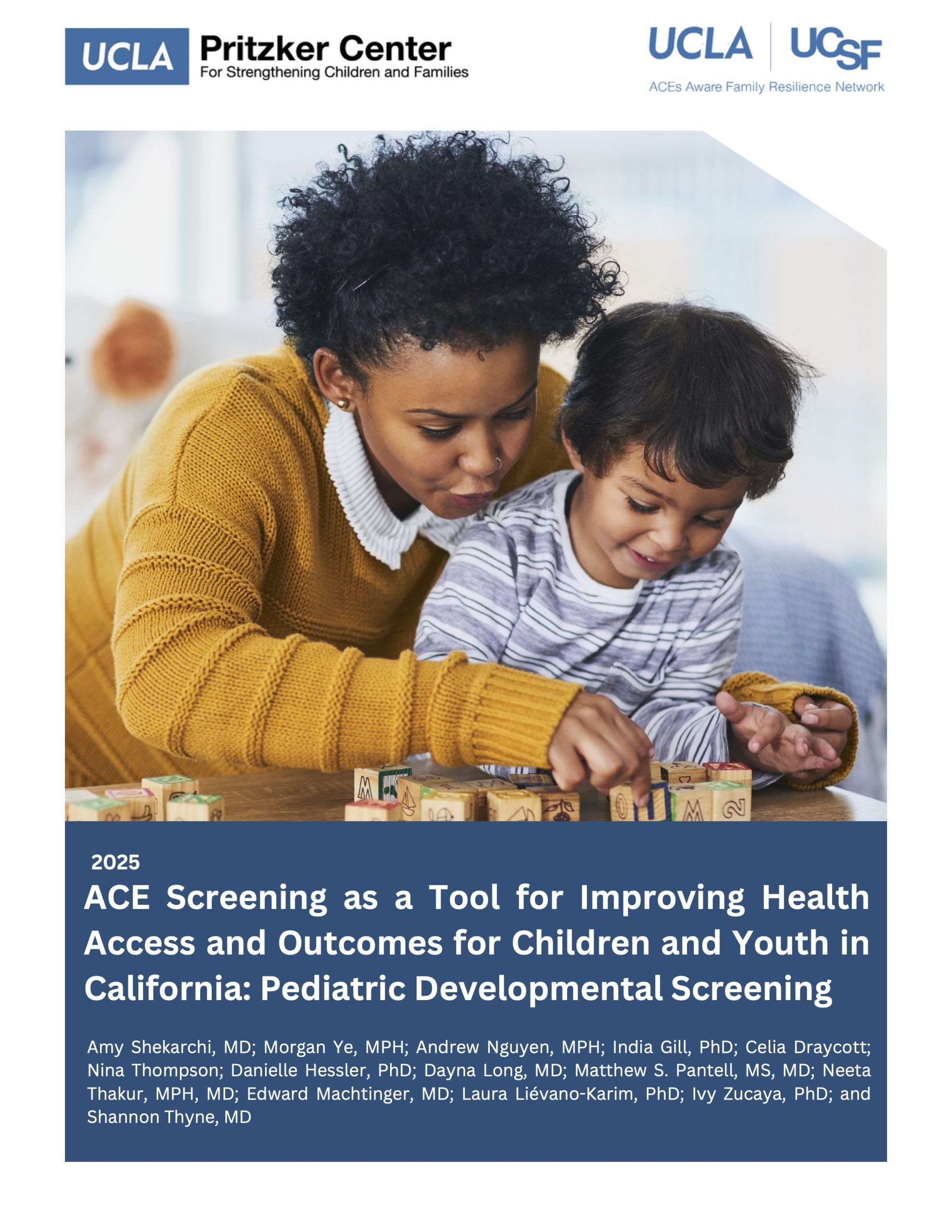ACE Screening as a Tool for Improving Health Access and Outcomes for Children and Youth in California
Pediatric Developmental Screening

Childhood traumatic events and exposure to stress-inducing social or household conditions can have profound and lasting impacts on development, health, and social functioning. Adverse childhood experiences (ACEs) have been associated with developmental delays and long-term health challenges. ACE screening is a valuable tool in mitigating the effects of toxic stress and supporting children’s health and well-being.
In 2019, California launched the statewide ACEs Aware initiative to standardize the screening of and response to ACEs within the state’s Medi-Cal population. To date, more than 20,000 Medi-Cal providers are certified to bill for ACE screening activities, with steady program uptake.
Early implementation of ACEs Aware has demonstrated that routine screening improves provider responses for patients with complex social needs. New state programs have the potential to further expand the reach of reimbursable ACE response activities within primary care settings and in the community.
This brief summarizes an analysis of electronic health record (EHR) data from pediatric patients ages 0 to 3 within the Los Angeles County Department of Health Services (LA DHS) that examines the relationship between ACE screening and pediatric developmental assessment metrics.
Pediatric primary care patients screened for ACEs were significantly more likely to also receive age-specific developmental and autism screenings when compared to those not screened for ACEs. In addition to supporting the identification of and response to childhood trauma, ACE screening may support early identification of developmental concerns, timely referrals to support services and resources, strengthen preventive healthcare practices, and support stronger engagement of families in services for children who are identified with developmental delay or autism spectrum disorder.
Key Takeaways
• Screening California’s children for ACEs can facilitate identification of developmental delays, which can lead to earlier interventions and better supports for children with developmental disorders.
• Opportunities exist to enhance partnerships between Medi-Cal managed care organizations (MCOs) and affiliated practice groups to leverage ECM and other CalAIM initiatives as part of the clinical response for children identified with developmental delay or autism.


Recommendations
1. Policymakers should support ongoing efforts to integrate ACE screening into pediatric care, particularly among Medi-Cal recipients, who have traditionally experienced less access to primary care and developmental services. This includes supporting and incentivizing ACE screening and response training in conjunction with Managed Care Organizations (MCOs).
2. To optimize pediatric developmental outcomes, policymakers should encourage expanded ACE screening as part of primary care practices to improve early identification and intervention for developmental and allocate funding to help bridge the identification of childhood trauma, developmental concerns, and early intervention service needs.
This work was funded by the UCLA/UCSF ACEs Aware Family Resilience Network (UCAAN) and Olive View-UCLA Education and Research Institute.


